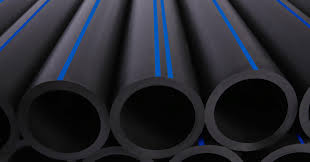Oct . 10, 2024 11:18 Back to list
hdpe pipe used for manufacturers
Understanding HDPE Pipe Applications for Manufacturers
High-Density Polyethylene (HDPE) piping has gained immense popularity in various industrial applications due to its numerous advantages over traditional materials such as metal and PVC. As manufacturers increasingly seek efficient and cost-effective solutions, the utilization of HDPE pipes presents several compelling benefits. This article aims to explore the features, advantages, and diverse applications of HDPE pipes in manufacturing.
What is HDPE?
HDPE, or high-density polyethylene, is a thermoplastic polymer made from petroleum. Its high strength-to-density ratio makes it an ideal material for a wide range of applications, including pipes. HDPE pipes exhibit excellent chemical resistance, flexibility, and durability, making them suitable for various demanding environments.
Advantages of HDPE Pipes
1. Durability and Longevity HDPE pipes have a long lifespan that can exceed 50 years under optimal conditions. Their resistance to corrosion and impact ensures they maintain their integrity over time, making them a reliable option for manufacturers.
2. Chemical Resistance One of the standout features of HDPE is its outstanding resistance to a wide range of chemicals, including acids and bases. This property reduces the risk of pipe degradation, making HDPE pipes ideal for transporting chemical substances in manufacturing processes.
3. Lightweight and Easy to Handle Compared to metal pipes, HDPE pipes are lightweight, which simplifies transportation, installation, and handling. This characteristic can significantly reduce labor costs and time during the installation process.
4. Flexibility HDPE pipes have a high degree of flexibility, allowing them to be installed in various configurations without the need for many fittings. This flexibility is particularly advantageous in environments where terrain may be uneven or unpredictable.
5. Cost-Effectiveness Over their lifecycle, HDPE pipes can be more cost-effective than traditional piping solutions due to their durability, reduced maintenance needs, and ease of installation. Their longevity means fewer replacements and repairs, providing substantial savings for manufacturers.
hdpe pipe used for manufacturers

6. Environmentally Friendly HDPE is a recyclable material, which aligns with sustainability practices. Manufacturers can use recycled HDPE in new pipe production, helping to minimize waste and reduce the carbon footprint of the manufacturing process.
Applications in Manufacturing
HDPE pipes are utilized in a variety of manufacturing sectors due to their versatile properties. Some notable applications include
1. Chemical Processing In industries involving the transport of chemicals, HDPE pipes are the preferred choice due to their excellent chemical resistance. They can safely transport corrosive substances, making them essential in chemical plants.
2. Mining and Waste Management The mining industry frequently uses HDPE pipes for wastewater management and slurry transport. Their durability in harsh environments ensures reliability during the extraction and processing of minerals.
3. Food and Beverage Industry The food and beverage sector benefits from HDPE pipes as they are non-toxic and comply with health regulations. They are commonly used for transporting water and various food products without contamination.
4. Irrigation Systems Agriculture manufacturers utilize HDPE pipes for their irrigation systems. Their resistance to UV radiation and soil corrosion enables them to function efficiently in diverse climatic conditions.
5. Telecommunications HDPE conduits are increasingly used for telecommunications cables due to their lightweight nature and resistance to environmental factors.
Conclusion
In summary, HDPE pipes represent a significant advancement in piping technology for manufacturers. Their durability, chemical resistance, and cost-effectiveness make them an optimal choice for a wide array of industrial applications. As industries continue to evolve and demand more robust solutions, the prevalence of HDPE pipes is likely to grow, further solidifying their role as a staple in modern manufacturing. Investing in HDPE pipes not only meets current operational needs but is also a forward-thinking choice for sustainable and efficient manufacturing practices.
-
High-Quality PVC Borehole Pipes Durable & Versatile Pipe Solutions
NewsJul.08,2025
-
High-Quality PVC Perforated Pipes for Efficient Drainage Leading Manufacturers & Factories
NewsJul.08,2025
-
High-Quality PVC Borehole Pipes Durable Pipe Solutions by Leading Manufacturer
NewsJul.08,2025
-
High-Quality PVC Borehole Pipes Reliable PVC Pipe Manufacturer Solutions
NewsJul.07,2025
-
High-Quality UPVC Drain Pipes Durable HDPE & Drain Pipe Solutions
NewsJul.07,2025
-
High-Quality Conduit Pipes & HDPE Conduit Fittings Manufacturer Reliable Factory Supply
NewsJul.06,2025

